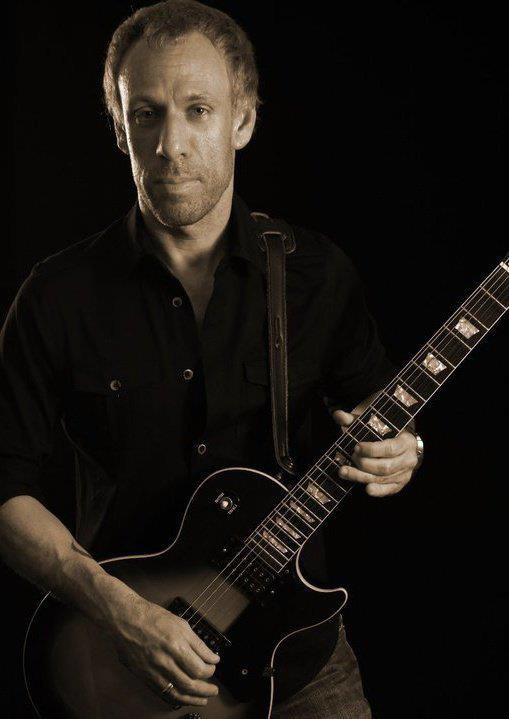The Complete Guitarist: How to Get — and Keep — the Gig

Happy New Year!
I hope the year has started off on a good and positive note (pardon the pun) for all of my readers, and I wish you all nothing but success and happiness in 2013.
The one thing I'm most proud of in my career is the fact that I've always gotten the gig I wanted, without fail. Whether it was passing the audition for a band, getting accepted into a conservatory, creating a successful teaching business or getting shows, I've gotten the job done.
These accomplishments didn't come by accident. Some say I'm lucky. But all successful people, musicians or not, know that luck = hard work + opportunity.
In this blog post, I'll discuss some of my personal philosophies and strategies I've used over the past 30 years to get and keep the gig you've always wanted.
Have Your Musicianship Together: Auditions can be daunting and intimidating. I want to go into that situation prepared for anything. The more prepared you are musically, the more confidence you'll have, and it'll show through your demeanor and playing.
I once auditioned for a cover band. I asked the band leader for their playlist and which songs they'd like me to learn. For a cover band gig, usually only three songs from the list will be enough. They should know after three songs if you have it together. You want to show that you are a team player and you're joining them, not the other way around, so to me it's important to learn the songs the band wants you to learn, not your personal favorites from the list. I did just that and got the gig, which lasted about five years.
All the latest guitar news, interviews, lessons, reviews, deals and more, direct to your inbox!
A few years back, I auditioned for an original band called The Lights. They asked me to learn five songs from their EP at the time. Not only did I learn the guitar parts, but I also went over some of they keyboard and bass parts. I wanted them to know I really enjoyed and appreciated their music as a whole, not just the guitar work. And that I did my homework.
Needless to say, I got the gig. When The Lights went in to record a full-length CD, I went through all the songs in such detail that when I walked into the studio to do my parts, I had a notebook filled with what I wanted to record and where I wanted then to be, right down to the overdubs. This saved the engineer a lot of time and headaches, and it saved the money guys a lot of cash because I didn't waste their time trying to figure my parts out when I got there.
Always remember: Time = money in this and in any business. My preparedness was so appreciated that the engineer recommended me to other musicians for some free lance session work because he knew I had my musicianship together. Keep in mind that you are just one guitar player in a sea of hundreds of players trying to get the same gig, so you need to do something to separate yourself from the pack. Talent and great playing are not enough in these situations, unfortunately. Preparedness along with your playing will get you there.
Appearance Matters: Is it shallow and vain to make such a statement? Absolutely and emphatically YES! Is it the truth? Absolutely and emphatically YES! Now what I mean by appearance is not having the perfect body with ripped biceps and six-pack abs. I mean dressing professionally. How can we expect anyone to take us seriously as musicians if we don't take ourselves seriously?
At a gig, on stage, a clean nice button-down or T-shirt with a nice pair of dark jeans will do. When I'm in the audience, I hate to see musicians who look like they just changed the oil in their car and walked on stage. It is disrespectful to the audience to not present yourself in the best possible light.
For more upscale gigs, a tucked-in shirt and dress slacks are a must. I'm playing classical guitar at a few private events this year; I'll be wearing a two- or three-piece suit or a tuxedo. When I'm "working" as a music therapist, I will be in a shirt, tie and slacks. You will be surprised how others treat you if you dress appropriately. You will be taken more seriously and will be given a higher degree of respect as a professional musician. I can say with utmost certainty that I've gotten many a job and callback due to a clean and pressed dress shirt.
Treat It Like a Business: Most musicians tend to forget it's called the music business. If you can, have all the details of the gig worked out beforehand. In a perfect world, I'd like to say all club and bar owners will honor their side of a deal with a handshake and smile. We all know this world is far from perfect. Try hard to have the exact specifications of what your employer expects from you that night and what you expect from your employer.
I cannot stress enough the importance of having things written down and signed in contract form, especially your fee for the night. I know musicians on the circuit who if they are playing for free drinks and french fries that night, will have a contract written up for the bar owner to sign stating exactly that! I always wondered why the big bands have these ridiculous riders in their gig contracts (the infamous brown Van Halen/M&M story comes to mind). The reason is so the promoters read the contracts in detail.
Why do the artists want the promoters to read in detail? To make sure the artist gets their due pay for the gig. Always be professional at gigs and sessions. If you are working at a venue for $100 for the night, don't drink away $200 at the bar. Yes, I have seen that happen. You just paid the club owner to play your own gig! They just got over on you. You're there on business.
If the club is cool, go back on your own time. At the end of the night, thank the owner and try and book another one and go home. Try and have business cards made up and at the ready at every gig you play. Don't try and promote other gigs your are playing in the future without the permission of the bar owner that night. Be gracious. When I play classical gigs, I have business cards ready on my music stand to hand out to anybody who wants my services in the future. I also carry business cards during session gigs and when I teach. Hey, you never know.
In this business and in life, you will be treated in the way to demand to be treated. You will go as far as your attitude will allow you to go. Have low expectations and your will get low results. have high expectations for yourself and the sky is the limit!
Now get out there and make it happen, y'all ...
Guitarist Richard Rossicone is a veteran of the New York City and Long Island original and cover band scene. He's been playing since he was 8, when he attended his first concert (Kiss) and saw Pete Townshend smash a guitar. He has studied with various instructors over the years, which led him to a career in music therapy. He began his educational journey at Queensboro Community College, where the faculty introducing him to classical music. He received his associate's degree in fine arts in 1997 and went on to receive his bachelor's in music therapy in 2001 and his master's in music therapy from New York University in 2004. He's been Board Certified as a music therapist since 2002. Richard continued his studies at C.W. Post University, pursuing a second master's degree in classical guitar performance and music history, studying under Harris Becker. He's been teaching guitar, piano and theory since 2002 and in 2006 started his own company, Rossicone Music Studios. Visit him at Axgrinder.com
